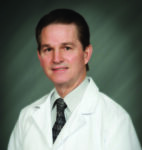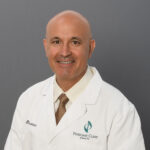Founded eight years ago, the Rheumatology Association of Iowa (RAI) is one of the newer state rheumatology organizations. RAI is a diverse group of approximately 60 rheumatology professionals, including physicians, nurse practitioners, physician assistants, nurses and practice managers.

Dr. Brooks
Michael Brooks, MD, FACP, FACR, a rheumatologist/partner with Physicians Clinic of Iowa, Cedar Rapids, was RAI’s founding president and now serves on the organization’s Board of Directors. Prior to 2014, he says, individual rheumatology practices within Iowa operated without much collaboration. They also lacked the ability to meet as a group and discuss what could be done to improve patient care, the statewide level of practice regulations, and insurance and governmental requirements that ensure patients get the right medication at the right time.
Bogdan Cherascu, MD, MS, a rheumatologist/partner with Physicians Clinic of Iowa, is RAI’s current president. He notes that Iowa, like many states, is faced with the challenge of attracting new rheumatology professionals to the state.
“We have an opening for a rheumatologist here at my practice that we’ve been looking to fill for some time,” Dr. Cherascu says.

Dr. Cherascu
Providing care to rural patients is also challenging because most of Iowa’s rheumatologists practice in larger cities, such as Cedar Rapids, Des Moines and Davenport, says Dr. Cherascu. The University of Iowa Stead Family Children’s Hospital in Iowa City is the only medical center that provides pediatric rheumatology care in the state.
In several rural areas of Iowa, including Charlton and Bloomfield, nurse practitioners have started to see patients two to three times each month to fill the gap between supply and demand for rheumatologists.
“I have patients who travel two hours to our rheumatology practice,” Dr. Cherascu says. “This can be an especially difficult journey during the winter months.”
A lack of rheumatologists also leads to longer wait times for patients. At his own practice, Dr. Cherascu says new patients typically wait several weeks for an appointment, while other rheumatology practices are booking appointments several months in advance.
Within the state, Dr. Cherascu says rheumatologists see a high incidence of rheumatoid arthritis and temporal arteritis cases, as well as complicated gout and osteoarthritis, commonly seen in farmers and farm workers.
Although many rheumatologists have embraced telehealth in the past two years, the technology poses challenges in cases where patients require regular infusions or injections and in rural areas where residents lack access to reliable broadband services.